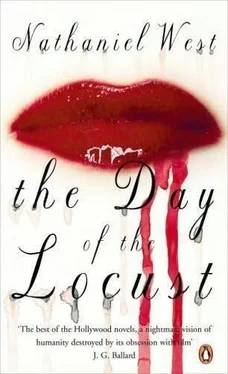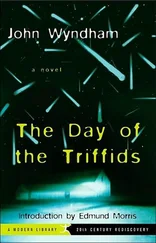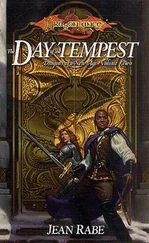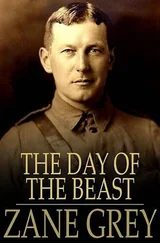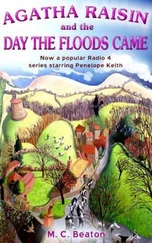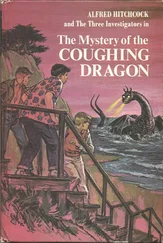“Perhaps you would like me to take it back, sir?”
“No, no.”
“Thank you, sir.”
But he didn’t leave. He waited to make sure that the customer was really going to eat. Tod picked up his knife and cut a piece. Not until he had also put some boiled potato in his mouth did the man leave. Tod tried to start the rape going again, but he couldn’t feel the bottle as he raised it to strike. He had to give it up. The waiter came back. Tod looked at the steak. It was a very good one, but he wasn’t hungry any more.
“A check, please.”
“No dessert, sir?”
“No, thank you, just a check.”
“Check it is, sir,” the man said brightly as he fumbled for his pad and pencil.
When Tod reached the street, he saw a dozen great violet shafts of light moving across the evening sky in wide crazy sweeps. Whenever one of the fiery columns reached the lowest point of its arc, it lit for a moment the rose-colored domes and delicate minarets of Kahn’s Persian Palace Theatre. The purpose of this display was to signal the world premiere of a new picture.
Turning his back on the searchlights, he started in the opposite direction, toward Homer’s place. Before he had gone very far, he saw a clock that read a quarter past six and changed his mind about going back just yet. He might as well let the poor fellow sleep for another hour and kill some time by looking at the crowds.
When still a block from the theatre, he saw an enormous electric sign that hung over the middle of the street. In letters ten feet high he read that “MR. KAHN A PLEASURE DOME DECREED” Although it was still several hours before the celebrities would arrive, thousands of people had already gathered. They stood facing the theatre with their backs toward the gutter in a thick line hundreds of feet long. A big squad of policemen was trying to keep a lane open between the front rank of the crowd and the facade of the theatre.
Tod entered the lane while the policeman guarding it was busy with a woman whose parcel had torn open, dropping oranges all over the place. Another policeman shouted for him to get the hell across the street, but he took a chance and kept going. They had enough to do without chasing him. He noticed how worried they looked and how careful they tried to be. If they had to arrest someone, they joked good-naturedly with the culprit, making light of it until they got him around the corner, then they whaled him with their clubs. Only so long as the man was actually part of the crowd did they have to be gentle.
Tod had walked only a short distance along the narrow lane when he began to get frightened. People shouted, commenting on his hat, his carriage, and his clothing. There was a continuous roar of catcalls, laughter and yells, pierced occasionally by a scream. The scream was usually followed by a sudden movement in the dense mass and part of it would surge forward wherever the police line was weakest. As soon as that part was rammed back, the bulge would pop out somewhere else.
The police force would have to be doubled when the stars started to arrive. At the sight of their heroes and heroines, the crowd would turn demoniac. Some little gesture, either too pleasing or too offensive, would start it moving and then nothing but machine guns would stop it. Individually the purpose of its members might simply be to get a souvenir, but collectively it would grab and rend. A young man with a portable microphone was describing the scene. His rapid, hysterical voice was like that of a revivalist preacher whipping his congregation toward the ecstasy of fits.
“What a crowd, folks! What a crowd! There must be ten thousand excited, screaming fans outside Kahn’s Persian tonight. The police can’t hold them. Here, listen to them roar.”
He held the microphone out and those near it obligingly roared for him. “Did you hear it? It’s a bedlam, folks. A veritable bedlam! What excitement! Of all the premieres I’ve attended, this is the most…the most…stupendous, folks. Can the police hold them? Can they? It doesn’t look so, folks…”
Another squad of police came charging up. The sergeant pleaded with the announcer to stand further back so the people couldn’t hear him His men threw themselves at the crowd. It allowed itself to be hustled and shoved out of habit and because it lacked an objective. It tolerated the police, just as a bull elephant does when he allows a small boy to drive him with a light stick.
Tod could see very few people who looked tough, nor could he see any working men. The crowd was made up of the lower middle classes, every other person one of his torchbearers.
Just as he came near the end of the lane, it closed in front of him with a heave, and he had to fight his way through. Someone knocked his hat off and when he stooped to pick it up, someone kicked him. He whirled around angrily and found himself surrounded by people who were laughing at him. He knew enough to laugh with them. The crowd became sympathetic. A stout woman slapped him on the back, while a man handed him his hat, first brushing it carefully with his sleeve. Still another man shouted for a way to be cleared.
By a great deal of pushing and squirming, always trying to look as though he were enjoying himself, Tod finally managed to break into the open. After rearranging his clothes, he went over to a parking lot and sat down on the retaining wall that ran along the front of it. New groups, whole families, kept arriving. He could see a change come over them as soon as they had become part of the crowd. Until they reached the line, they looked difficult, almost furtive, but the moment they had become part of it, they turned arrogant and pugnacious. It was a mistake to think them harmless curiosity seekers. They were savage and bitter, especially the middle-aged and the old, and had been made so by boredom and disappointment.
All their lives they had slaved at some kind of dull, heavy labor, behind desks and counters, in the fields and at tedious machines of all sorts, saving their pennies and dreaming of the leisure that would be theirs when they had enough. Finally that day came. They could draw a weekly income of ten or fifteen dollars. Where else should they go but California, the land of sunshine and oranges?
Once there, they discover that sunshine isn’t enough. They get tired of oranges, even of avocado pears and passion fruit. Nothing happens. They don’t know what to do with their time. They haven’t the mental equipment for leisure, the money nor the physical equipment for pleasure. Did they slave so long just to go to an occasional Iowa picnic? What else is there? They watch the waves come in at Venice. There wasn’t any ocean where most of them came from, but after you’ve seen one wave, you’ve seen them all. The same is true of the airplanes at Glendale. If only a plane would crash once in a while so that they could watch the passengers being consumed in a “holocaust of flame,” as the newspapers put it. But the planes never crash.
Their boredom becomes more and more terrible. They realize that they’ve been tricked and burn with resentment. Every day of their lives they read the newspapers and went to the movies. Both fed them on lynchings, murder, sex crimes, explosions, wrecks, love nests, fires, miracles, revolutions, war. This daily diet made sophisticates of them. The sun is a joke. Oranges can’t titillate their jaded palates. Nothing can ever be violent enough to make taut their slack minds and bodies. They have been cheated and betrayed. They have slaved and saved for nothing. Tod stood up. During the ten minutes he had been sitting on the wall, the crowd had grown thirty feet and he was afraid that his escape might be cut off if he loitered much longer. He crossed to the other side of the street and started back.
Читать дальше
